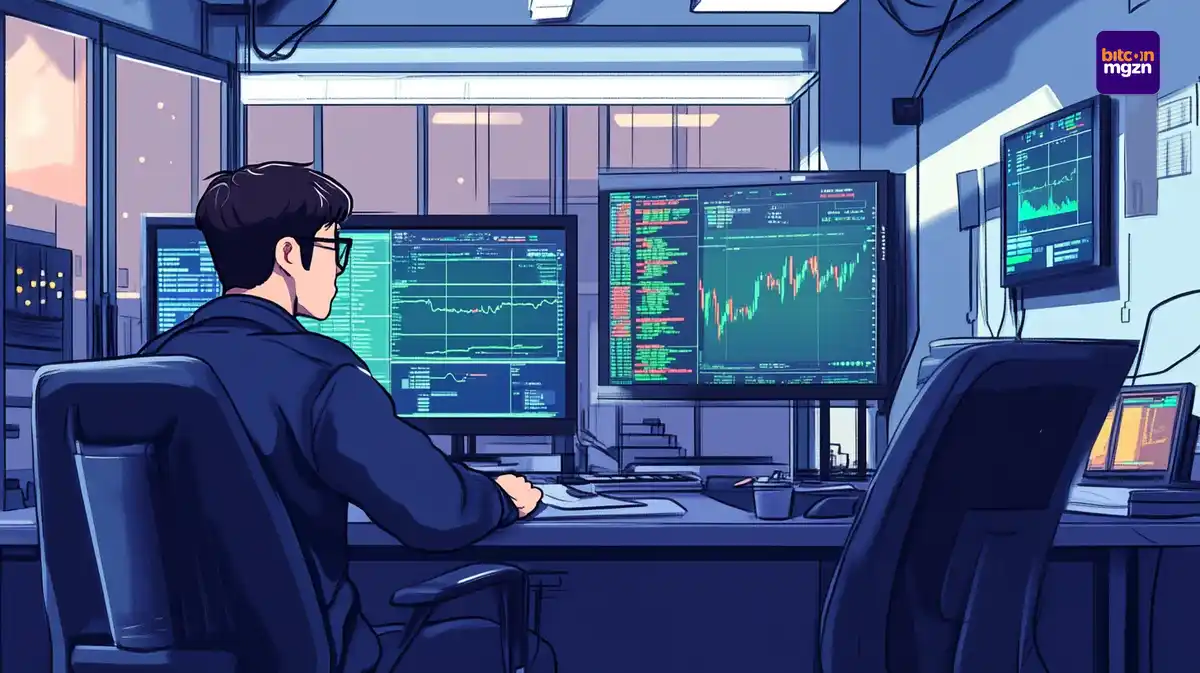In recent discussions surrounding the economic landscape, a notable voice has emerged in the form of economist Michael Pettis, who has drawn attention to the complexities behind the volatility of the cryptocurrency market influenced by trade tensions. His insights reveal a deeper trend: the impact of tariffs, introduced by the Trump administration, extends beyond international politics, revealing critical implications for everyday Americans.
Understanding the Tariff Impact
Pettis highlights that the recent tariffs introduced create a layer of confusion rather than clarity, affecting a broad selection of countries, including seemingly unrelated territories such as the Heard and McDonald Islands. This randomness raises eyebrows over the selection criteria and challenges the effectiveness of the tariffs aimed at reducing the U.S. trade deficit. These structural issues stem from persistent low domestic demand in major exporting nations like China and Germany, rather than merely from trade policies.
The Ripple Effect on Cryptocurrency
The connection between tariffs and the cryptocurrency market may not be direct, but it is nevertheless significant. The emotional responses of investors often result in dramatic fluctuations in financial markets, including cryptocurrencies. Pettis argues that this reaction is more psychological than economic, given that the tariffs themselves do not alter fundamental market values. Instead, they create an environment of panic which can lead to significant drops in assets like Bitcoin, further shaking investor confidence. This heightened sense of anxiety can lead to a sell-off, as investors scramble to mitigate potential losses. As a result, tools like the crypto fear index analysis become vital for understanding market sentiment during such turbulent times. By assessing levels of fear and uncertainty, traders can make more informed decisions and navigate the volatile landscape shaped by external factors, including tariffs.
Trade Wars and Class Struggles
Highlighting the broader implications of trade disputes, Pettis discusses his book, “Trade Wars Are Class Wars,” wherein he posits that these conflicts are not merely contests between nations but also manifestations of socioeconomic struggles within the U.S. The real victims, he argues, are American workers and consumers who bear the brunt of these tariffs as costs are passed down through supply chains, essentially acting as a regressive tax that hits lower-income individuals hardest.
The Long-term Economic Landscape
The essence of Pettis’ argument underscores a more troubling trend: American wages have stagnated relative to productivity increases over the years. This disconnect fosters inequality and perpetuates chronic trade deficits. Pettis emphasizes the need for rising wages to match productivity as essential for sustainable economic growth. Without this balance, the ongoing class struggles will only deepen, leaving a lasting impact on the labor market and domestic economic health.
Seeking Alternatives: The Role of Cryptocurrency
For many individuals disillusioned by the existing economic framework, cryptocurrency presents an alternative model fueled by ideals of decentralization and resistance to government control. However, Pettis cautions that while cryptocurrency has the potential to challenge traditional financial systems, it does not in itself provide a cure-all for underlying economic problems such as inequality and unsustainable consumption practices.
As the discourse around tariffs and trade continues to evolve, Pettis’ insights serve as a critical reminder of the interconnectedness of global economics, consumer impacts, and the burgeoning cryptocurrency market amidst political strife.


